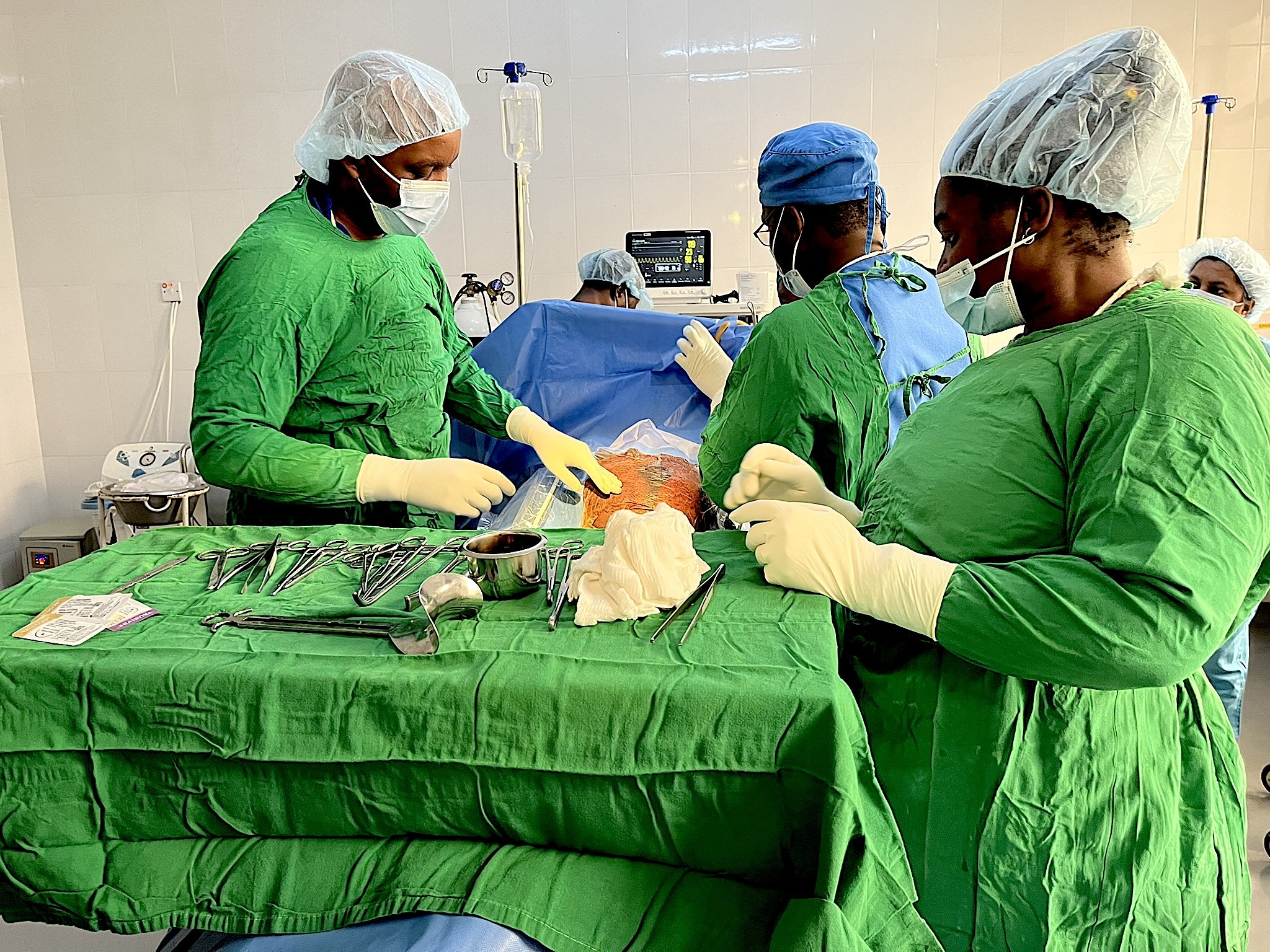
C-Safe Project | India & Tanzania
Ensuring Safe and Appropriate Caesarean Sections
C-Safe is a 5-year project led by the University of Birmingham, a WHO Collaborating Centre for Global Women’s Health, and a consortium of partners, including the GSF.
The project focuses on optimising maternal and perinatal outcomes through safe and appropriate caesarean sections (CS) by providing training and resources to teams of healthcare providers (nurses, midwives, surgeons, anaesthesiologists) in India and Tanzania. Learn more on the official project website.
Women in low- and middle-income countries are 100 times more likely to die from caesarean sections compared to women in high-income countries.
Our mission
The C-Safe project aims to ensure caesarean sections are done for the right reasons, improve safety of caesarean sections, and promote safe and respectful care in labour resulting in vaginal births, including safe assisted vaginal births with instruments.
C-Safe Approach
C-Safe co-develops evidence-based interventions that are acceptable, equitable, sustainable and which can be adapted or scaled-up cost-effectively across settings, by collaborating with women and their support networks, healthcare providers, policymakers and other relevant stakeholders.
Mapping the Evidence
We identify and bring together evidence on the effects of interventions and outcomes.
Co-development and Refinement
We develop the interventions during a pilot trial with regional healthcare providers, women and policymakers on what is considered to be beneficial, acceptable, relevant, accessible and feasible.
Prioritization of Components
We rank the interventions and outcomes according to their importance to key local professionals, local maternity care users, and community members.
Evaluation
We expand the clinical trial and test whether the C-Safe strategy changes practice and increases uptake of the intervention by healthcare providers, as well as the number of women receiving it.
Our Target Countries
The C-Safe project is active in India and Tanzania.
Expected impact
The C-Safe project achieves improved maternal and newborn outcomes as a result of:
1
Promoting safe and respectful care in labor resulting in vaginal births, including safe birth with instruments
2
Ensuring caesarean sections are done for the right reasons
3
Improving the safety of
caesarean sections
4
Generating evidence that can help inform programming and be scaled
About the project
Caesarean section is considered a life-saving procedure for pregnant women and their babies. Yet, in low and middle- income countries, mothers who give birth by caesarean section are 100 times more likely to die than those having the procedure in high-income countries. The main reasons for poor outcomes after caesarean section in low- and middle-income countries are:
Safe, respectful physiologic vaginal births are not promoted
Safe assisted vaginal births are not promoted, which leads to complicated caesarean sections in advanced labour
Lack of clear, clinical indications for caesarean section
Inappropriate caesarean sections, too little too late (underuse) or too many too soon (overuse)
Unsafe practices in performing the procedure
We need to both improve the safety of caesarean sections and ensure they are only done when needed. C-Safe is a 5-year project aimed at improving maternal and neonatal mortality rates through safe and appropriate caesarean sections. The C-Safe team is dedicated to making a difference in the lives of mothers and their babies. We provide education and resources to healthcare providers and mothers to ensure safe pregnancies and births.
The C-Safe intervention will be implemented using a comprehensive training programme, empowerment of local opinion leaders and mothers, team-based working, and learning through audit and feedback, in four hospitals each in India and Tanzania. The three components of C-Safe are C-Non, C-Why, C-Op.
C-Non
Promoting Safe Vaginal Birth
Promote reduction in unnecessary caesarean sections by facilitating safe vaginal births, including assisted vaginal births. Improve care in labour by promoting respectful maternity care, supporting use of the program and labour care guide, appropriate clinical escalation of concern, promoting normality, labour and birth physiology, and training in vacuum assisted births
C-Why
Exploring Reasons for Caesarean Sections
Explore reasons for why caesarean sections are performed and develop a robust classification system, audit reasons for caesarean sections, train data collectors, and create clinical algorithms to support standardisation decision making. This will support accurate reporting of indications for caesarean sections.
C-Op
Creating Safer Caesarean Sections
Improve the safety of caesarean sections through peri-operative interventions and development of a C-Op manual for use. Intra-operative interventions include improved infection prevention and control, PPH prevention and treatment, use of an adapted WHO Surgical Safety Checklist for CS, combined with training to strengthen non-technical (e.g., teamwork and communication, team briefs, etc.), and technical clinical skills.
Within the project consortium, the GSF is supporting the activities of the C-Op component.
News and updates
Latest updates from our women’s health programme:
Our project partners
The Global Surgery Foundation works in a consortium led by the University of Birmingham with local and international partners to make the C-Safe Project a success.
Our GSF project lead
Dr. John Varallo
Team Lead, Women’s Health, GSF
Partner with us!
Partner with us today to accelerate access to surgical care for all mothers and newborns who need it.
Contact: j.varallo@globalsurgeryfoundation.org
Sign up for our mailing list below to receive project updates.







































